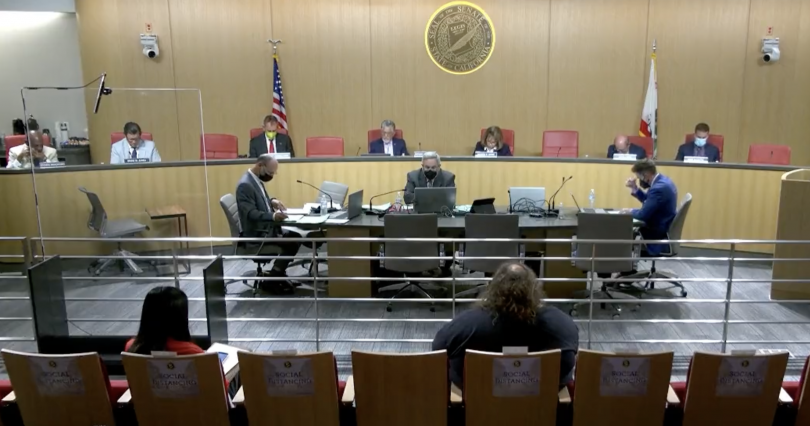California Governor Gavin Newsom has until the end of October 14 to sign and veto hundreds of bills that remain on his desk.
After the deadline, WitnessLA will publish a roundup of the final status of the important justice bills state legislators passed.
Before that final tallying, however, we wanted to take a look at the bills we’ve been tracking this year that did not make it out of the Senate and Assembly.
Set aside for next year
This year, 2023, is the first year in the current two-year legislative term. Thus, legislators could set aside bills facing steep opposition this year, and pick them back up in 2024, when they may have a better chance of passing and earning the governor’s signature.
Facing a likely veto from Governor Newsom, Assemblymember Chris Holden (D-Pasadena) held AB 280, a bill to restrict the use of solitary confinement in prisons and jails, so that it can be taken up again next year.
If passed in its current form in 2024, the bill would ban solitary confinement for individuals with physical or mental disabilities, people who are pregnant, and people under the age of 26 or over 59.
“Aside from the fact that solitary confinement only diminishes the prospects of successful rehabilitation, there are large bodies of research linking solitary confinement to self-harm, the deterioration of one’s mental health and even suicide,” said Asm. Holden. “We have even seen instances of pregnant women giving birth in solitary confinement. This is simply not right. California must discard this tortuous and counterproductive practice.”
Under AB 280, prisons and jails would not be able to lock a person in solitary confinement for more than 15 consecutive days or 45 total days in a 180-day period. In instances where people must be kept in individual housing for their own safety or for the safety of others, they must have access to adequate time out of their cell and to programming.
Newsom vetoed a similar bill in September 2022, arguing that while “segregated confinement is ripe for reform in the United States — and the same holds true in California,” the bill would have set “standards that are overly broad and exclusions that could risk the safety of both the staff and incarcerated population within these facilities.”
Newsom directed the California Department of Corrections and Rehabilitation to “develop regulations that would restrict the use of segregated confinement except in limited situations, such as where the individual has been found to have engaged in violence in the prison.”
The CDCR has not yet returned with those new regulations, which advocates worry won’t go far enough toward protecting vulnerable individuals from the harms of prolonged isolation.
Holding AB 280 until next year gives the bill’s authors time to see what the CDCR will do, and to then continue negotiations with Newsom.
Court reforms
If taken up again next year, AB 1209 would require judicial systems to appoint defense counsel within 24 hours of booking someone into jail. It would also allow people to waive their right to counsel only after meeting with a defense attorney.
“The right to effective legal counsel is a fundamental constitutional right endowed by our U.S. and California Constitutions,” wrote bill author Asm. Reggie Jones-Sawyer. “In spite of this right, defendants who cannot afford legal counsel are appearing in court without counsel, and often entering a plea without ever having spoken to an attorney on the facts of their case.”
Another delayed bill, AB 1266, sought to ban judges from issuing bench warrants for people who miss court dates or fail to pay tickets for minor infractions. If the bill passes next year, it would “ensure low-income Californians are not forced to languish in jail for not having the money to pay fines or unknowingly missing a court order to appear” for an infraction, according to bill author, Assemblymember Ash Kalra (D-San Jose).
AB 1186 would have removed the burden of restitution payments from kids convicted of crimes. Instead, courts may order children to complete community service hours or participate in community-based programs, including educational, employment, youth development, or mental health programs. The bill would not eliminate monetary restitution entirely. Instead, the California Victim Compensation Board would cover the total restitution bill, paying the recipient(s) directly.
A bill meant to protect trafficking and abuse survivors from criminalization, AB 1497, would have permitted defense attorneys to present evidence that a survivor was coerced to commit a violent crime as a direct result of their victimization and that they had a reasonable fear of harm. Like the others, this bill was held for 2023, but may be revived in 2024.
Policing
Going further upstream, SB 50 — which was sent to the inactive file but could be brought back next year — would block police from stopping people for minor traffic violations including driving with broken tail lights, and would authorize local municipalities to use non-sworn government workers to enforce non-moving violations.
Another now two-year bill, AB 742, sought to ban the use of police canines for controlling crowds, and to limit their use for apprehending and arresting people, “except to avoid the use of deadly force or to defend against a lethal threat by the person.”
A third policing bill, AB 93, which would have blocked police from conducting person or vehicle searches without justifiable cause, even if they had consent from an individual, was rejected on the Assembly floor.
Finally, SB 838, aims to remove barriers to victim compensation claims for people seriously hurt or killed by law enforcement, or who “fail to cooperate” with police.

